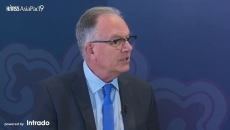Artificial Intelligence
Six healthcare artificial intelligence experts offer best practice suggestions for CIOs and other health IT leaders seeking to fine-tune their AI systems.
Alex MacLeod, manager of HealthShare Commercial Initiatives at InterSystems, talks about the key areas where AI is expected to advance healthcare in the coming years.
When looking at digitising healthcare, the challenges that European countries are grappling with are vast.
A new report from HIMSS, in cooperation with McKinsey, sheds light on the current state of eHealth in Europe.
In addition to gathering opinions on vendors including Health Catalyst, IBM Watson and Jvion, the research clears up some misconceptions about artificial intelligence systems and offers some best practices for safe and effective deployment.
Increased demand is changing the business of hospital management; tech advances around supply chain and machine learning can help, says Peter Faulkner, CEO of Bendigo Health, a large regional health service in Victoria, Australia.
SPONSORED
At the HIMSS Asia Pac 19 Conference in Bangkok, Thailand in early October, Omar Sunna, Director, Global Product Management, GE Healthcare, shared his insights on some of the data and workflow-related challenges currently faced by healthcare providers and how some of GE’s solutions and applications can help tackle or address some of these issues.
The more than two-dozen participants chosen to move on to Stage 1 of the challenge include Accenture, Geisinger, IBM, Mayo Clinic, Merck, Northrop Grumman and others.
The paper, which looked at the development, procurement and use of data-driven technologies for healthcare, was published earlier this week.
The Houston health system is enlisting technology and services help from Virtusa, Cardinal Health and Amazon Web Services to explore ways cloud-based AI can help manage diabetes and subarachnoid hemorrhage.


